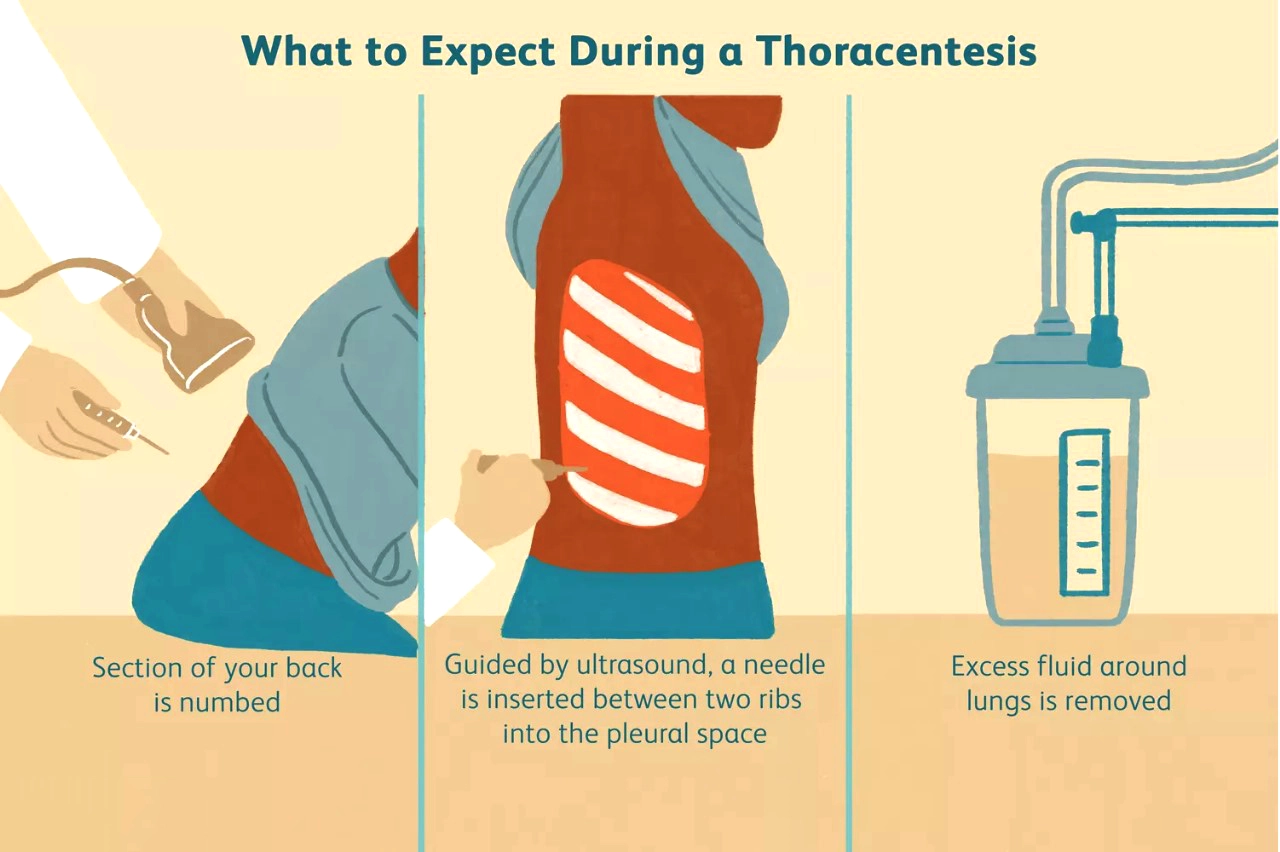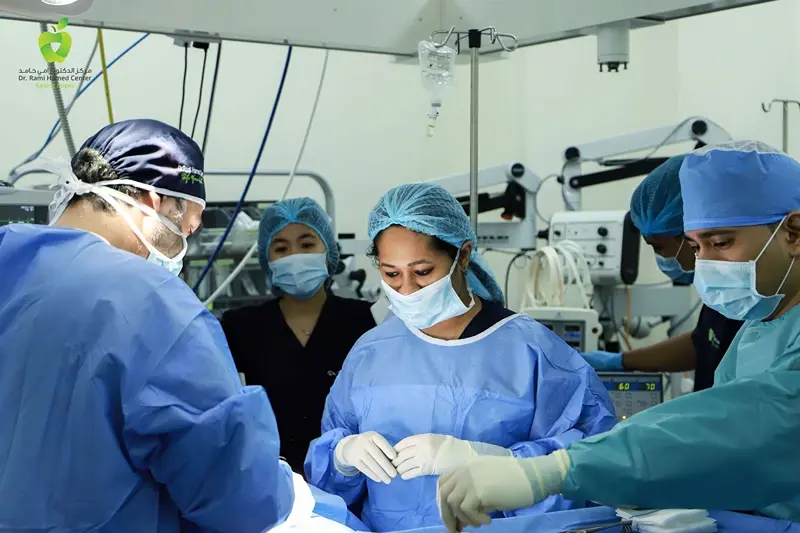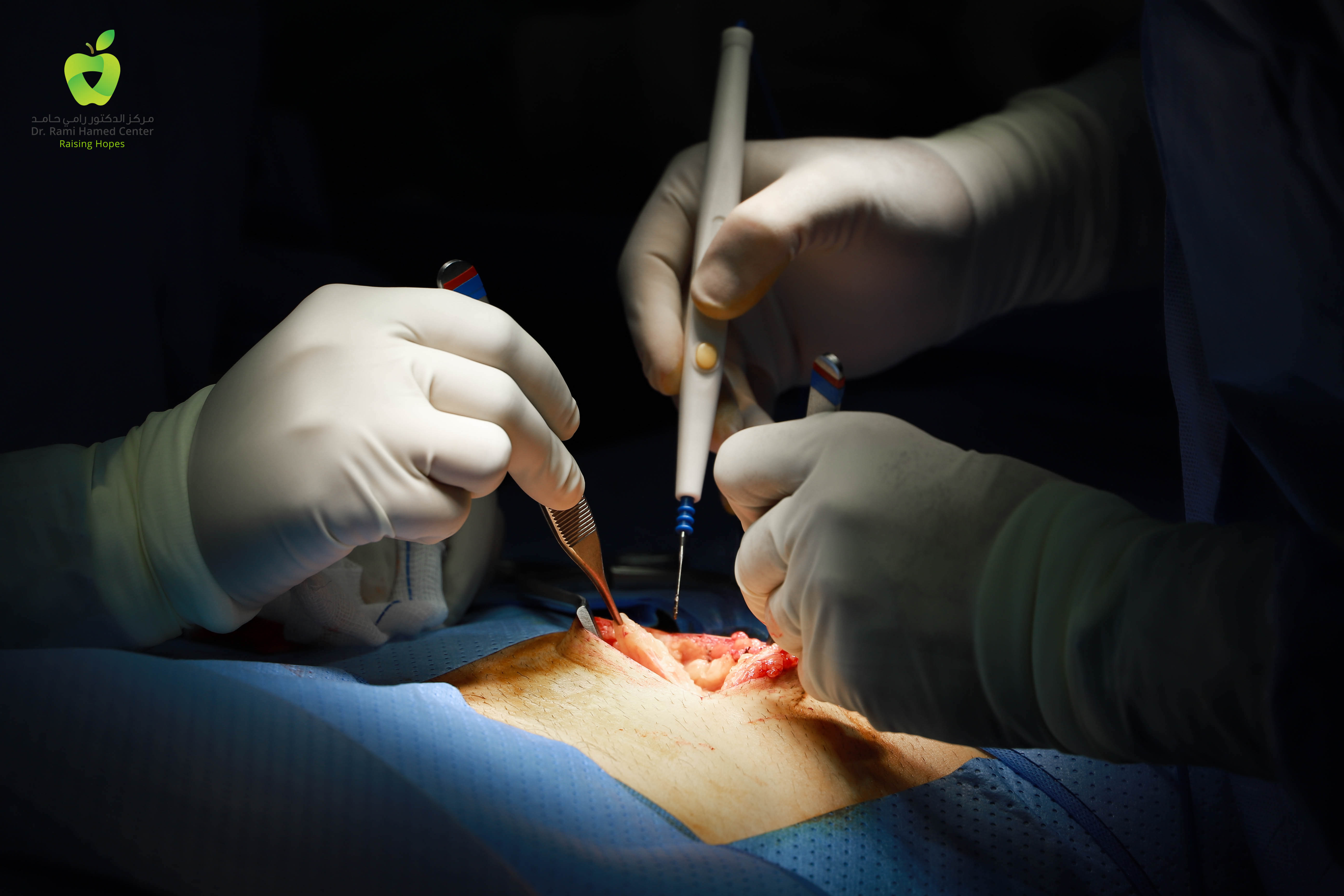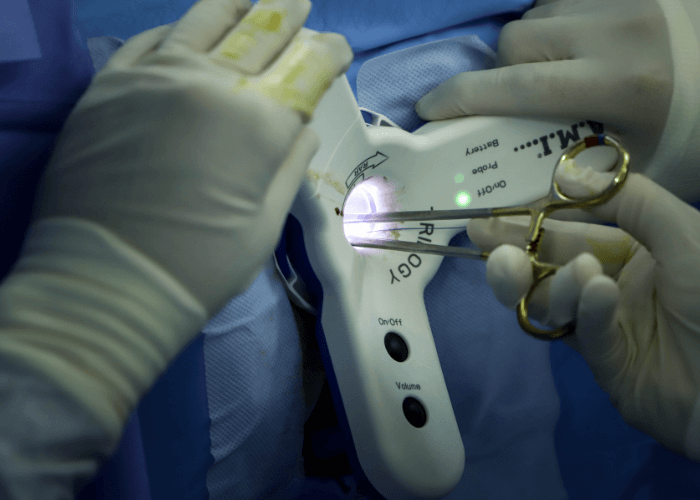Thoracentesis in Dubai at DRHC Thoracic Surgery Clinic
Thoracentesis is a specialized medical procedure designed to alleviate the buildup of excess fluid around the lungs, known as a pleural effusion.
Therapeutic thoracentesis serves as a targeted treatment aimed at reducing symptoms associated with pleural effusions, such as shortness of breath. By carefully extracting some of the accumulated fluid, patients can experience improved comfort and ease of breathing.
In the realm of diagnosis, diagnostic thoracentesis plays a crucial role in uncovering the underlying cause of a new pleural effusion when the medical rationale remains unclear. Through a meticulous analysis of the fluid in a laboratory setting, healthcare providers can pinpoint the root of the issue. While this type of thoracentesis typically involves removing a smaller volume of fluid compared to therapeutic procedures, it can offer valuable insights into the patient's condition.
In certain scenarios, thoracentesis may be employed both for diagnostic purposes and as a therapeutic intervention, providing immediate relief from symptoms while working towards a definitive diagnosis.
Causes of Pleural Effusion
The protein concentration in the pleural fluid dictates the underlying causes of pleural effusion. A low protein level (transudate) is commonly linked to cardiac, renal, and liver diseases, while a high protein level (exudate) is often associated with inflammatory, infectious, and neoplastic conditions.
Contraindications
Individuals with severe coagulopathy, significant respiratory failure, specific lung conditions like emphysema, and hypotension are not suitable candidates for the procedure. Those who are unable to remain still during the process or individuals receiving ventilator support should also avoid undergoing thoracentesis for safety reasons.
Before the Procedure
Prior to the thoracentesis procedure, your healthcare provider will engage in a thorough discussion about your medical history, conduct a physical examination, and evaluate your overall health.
Please inform your doctor if you are taking medications that impact your blood, such as aspirin or warfarin. It is advisable to fast for a few hours before the procedure to ensure optimal conditions.
The thoracentesis procedure typically lasts around 15 minutes and can be performed in an operating theater, at the bedside, or in an office setting under local anesthesia. If the amount of fluid to be extracted is minimal, ultrasound guidance may be utilized. Most individuals undergoing the procedure sit comfortably with their heads and arms supported on a table.
Do not hesitate to ask your clinician any questions you may have about the procedure.
After the Procedure
After the thoracentesis procedure, you will undergo a chest X-ray and be closely monitored for a period. This is essential as thoracentesis can occasionally lead to complications. If everything goes smoothly, you may be discharged and able to return home within a few hours.
Potential Complications
The primary complication to be mindful of following thoracentesis is pneumothorax, a potentially serious issue. Other potential complications to be aware of include:
- Re-expansion pulmonary edema (REPE)
- Damage to the spleen or liver
- Infection
- Air embolism
- Shortness of breath
- Pain
- Bleeding
In certain instances, these complications could necessitate an extended hospital stay. Treatment options may include the insertion of a chest tube for a significant pneumothorax. In other cases, close monitoring might suffice. It's important to note that serious complications are uncommon.
Contacting Your Healthcare Provider
If you encounter any symptoms post-procedure, promptly reach out to your healthcare provider. Look out for signs such as:
- - Chest pain
- Bleeding at the needle site
- Sudden breathing difficulties
- A cough with blood
Tests of Fluid Gathered from Thoracentesis
The appearance of the fluid offers valuable insights into the potential causes of fluid buildup. Common tests conducted on the fluid include analyzing:
- Glucose levels
- pH balance
- Cell count
- Protein concentration
- Bacterial presence
- Lactate dehydrogenase activity
If there are concerns about malignancy, a sample of the fluid can be sent for further evaluation by pathology.
For top-notch thoracic surgery in Dubai, contact DRHC at +97142798200. We offer expert thoracic surgeons and comprehensive care.
.png?width=281&height=59&name=bookanappointment%20(1).png)




.png?width=281&height=59&name=bookanappointment%20(1).png)




